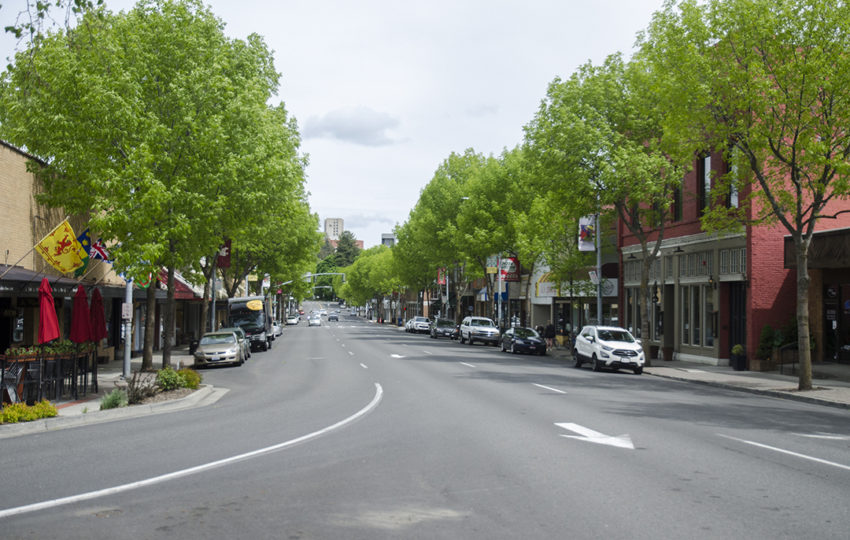Survey responses from 35 Pullman business owners reflect the widespread upheaval and uncertainty that swept through the local economy as COVID-19 forced the closure of community services in late March.
“People in general are frightened and unsure of the overall economic stability of the nation and the area,” one downtown business owner wrote on March 19. “We expect to see fewer people in town, much slower spending and a very hesitant approach to social events.”
Survey responses came from a wide variety of businesses ranging from local eateries to rental agencies to religious institutions. Business owners returned the surveys from March 19-25 in the days leading up to the governor’s stay home order and shortly after WSU moved all classes online.
The nonprofit Southeast Washington Economic Development Association put out the survey to screen businesses for initial support and potential funding. Officials say the organization has since received more than 300 responses from the three counties SEWEDA represents.
Whitman County Watch has not identified most businesses because the surveys were completed under promise of confidentiality. These 35 surveys became public record after SEWEDA emailed them to Pullman city officials during contentious discussions on providing economic relief services.
While some businesses indicated they had not yet seen any impact from the COVID-19 closures, others reported significant losses in revenue as WSU students left the area and customers hunkered down.
“We try to be prepared for hard times,” a downtown retailer wrote, “however we did not expect a pandemic combined with stock market upset.”
One business simply reported their revenue for this spring as “not much.” Pullman city staff redacted specific revenue estimates in the surveys.
Pullman Regional Hospital returned a survey indicating they had already seen a 20 percent drop in patient volume while also trying to invest in equipment to prepare for any COVID-19 outbreak.
“We have lost the main revenue stream for the organization,” hospital officials wrote. ”We are working on several avenues to assure that the hospital doesn’t close post the end of this!”
The Pullman-based nonprofit Community Action Center also expected to see increased costs and demands for service while struggling with lagging relief funds or reduced private donations.
“Working remotely and social distancing makes services to low income and marginalized residents with barriers to digital and telephonic services even more difficult,” they wrote.
Multiple childcare operations reported families had pulled their children from programs and could be slow to return. Most had already reduced staff hours or furloughed part-time employees.
“We have no tuition expected for April, but still have our overheads to pay,” one program wrote, adding, “Too much uncertainty.”
Realtors noted they had shut down any open houses and voiced concern about longterm impacts on the local housing market. Rental agencies reported a sharp decrease in contract renewals for the fall as WSU students waited to hear about plans for classes in the fall.
“We have students moving out of apartments and asking to cancel leases,” one rental agency wrote. “We will see delinquency and vacancy because of the WSU closure.”
Businesses reported staff had struggled to show up for shifts as schools and childcare facilities closed leaving children home all day. Restaurants scrambled to shift to take-out services while others simply planned to close temporarily.
“Things look pretty grim right now,” one restaurant wrote. “I wasn’t in the best place with my debt going into this mess.”
A couple businesses criticized increased government regulation. Others noted staying open didn’t make much sense if most of their customer based had already left town for at least the next few months.
“Summers are already slower for us,” one restaurant wrote, “now with the scare tactics of Media and our Government, our businesses will be impacted for the foreseeable future.”
A handful of businesses replied they expected little impact or had not yet seen any severe drop in revenue. Businesses with limited overhead said they could likely weather the closure by tapping savings or reducing take home.
“We have accepted the situation and reduced our personal income to pass the savings onto our customers,” one owner wrote. “We hope and plan that this will help build loyalty as businesses recover from this crisis. Either way, we have accepted our situation and will to do so with grace and understanding.”
